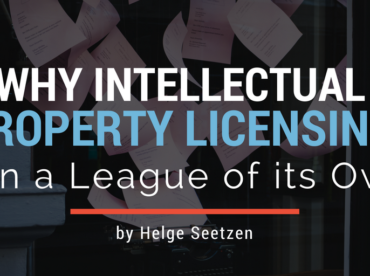At this point you are probably wondering why on earth I recommended that you find the Technology Transfer Office (TTO) in the first place. If they can’t develop your business, what are they good for other than taking some of “your” money? In fact, every single email I received following my last post asks for a way to “avoid” the TTO. That’s really the wrong question to ask. Not only is there no legal way around them, you would be missing out on the tremendous value that a good TTO can bring to your venture. You just need to leverage them properly.
The most obvious benefit of a TTO is that they can help you protect your invention. Unlike business development expenses, they actually have money to file patents. This is a big deal given the steep cost of patent filing ($20k+). More importantly, these guys really understand patents and patent strategy. Developing good patents is an art form and requires a lot of practice to get right. These patents will be the foundation of your new venture and I cannot overstate the importance of leveraging the TTO in this area. I read a lot of patents in my line of work. Patents developed by university TTO are almost always solid documents. Patents written by independent inventors are a bit like sticking your hand into a bee hive – there is honey in there somewhere but most of the time it just hurts a lot…
In addition to patents, the TTO also sees a lot of venture deals. This puts them in a position to be a great sounding board for your new company. Remember, they have a closely aligned interest so their opinion is usually not just informative but also fairly unbiased. Venture capitalists have a similar level of deal experience but I definitely wouldn’t consider their perspective unbiased.
Especially for first time entrepreneurs it can be very valuable to get help on deal structures and investment terms. Beyond the legal aspect, they can also give you an idea of the current investment market dynamics, common terms and so forth. Every VC that I have ever pitched to would throw out a number for liquidation preference and present it as “the way things are right now”. They will say this with completely believable conviction, as any good salesman should. I remember several such meetings when I started out as a university entrepreneur and it is very easy to come away with the firm impression that all these preferences are just “normal”. That’s until you realise that those “industry standard” numbers were different from one VC to the next, often even in the same town (though smaller city VCs tend to achieve a fairly good degree of colusion…). The TTO can help you get a better statistical perspective of the local market dynamics. They will have added tremendous value to your venture even if all they did steer you around a few aggressive deal terms.
At TandemLaunch I function at least in part as an investor, so these days I am partly on the other side of the table. Nevertheless I strongly urge inventors to get their TTO to explain deal terms. That includes my own terms. I would much rather have a fully briefed inventor than somebody who blows up halfway through the project because of some structural misunderstanding. A lot of investment terms are really about alignment of interest or the lack thereof. Understanding these up front can make the difference between success and failure of a venture.
You can also leverage your TTO after the launch of your venture. An example of this might be ongoing patent administration where your TTO manages the intellectual property of your start-up. Especially early on this can be a lot cheaper than gearing up your own legal process. At BrightSide we left the vast majority of our patents with their source universities under an exclusive license. The patents were only pulled into the company on the day of our acquisition. While BrightSide handled the prosecution of the portfolio, we benefitted a great deal from the expertise and support of the various TTO partners.
The TTO can also indirectly help you to defend your patents. Universities generally don’t enforce their patents through litigation but they can help in other ways. Any business built around intellectual property will sooner or later reach the point where a big company considers the cost of your royalty fees versus paying the legal fee necessary to screw you in court. Depending on your industry they will be more or less direct about this, but rest assured that everybody makes the analysis. At that point it can sometimes be a helpful posture to have the patents owned by a big public institution with much deeper pockets than your start-up. It’s a bit of a high wire act but can be very valuable if you can avoid actual litigation (university probably won’t actually reach into those deep pockets).
Finally, don’t be afraid of the barriers that a TTO might throw into your path. There will be some administrative issues and likely some relationship work but that’s unavoidable in any engagement with separate legal entities. Try going through investment or worse acquisition due diligence and the interaction with a TTO will seem like a breeze. Also always keep in mind that you are really calling the shots. The university will usually own the patent but without your active involvement they have practically no way to commercialise the invention. Most TTO in my experience have a problem motivating their inventors to be pro-active. They won’t stand in the way if you go out into the world to find financing or set up deals. Just keep them in the loop, leverage their skill set and think of them as an early investor/mentor.



